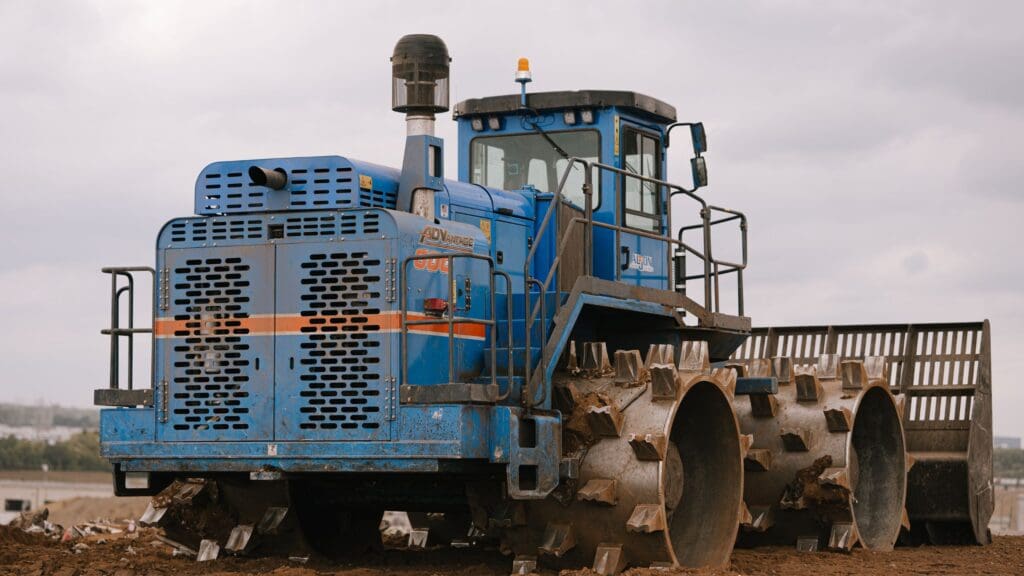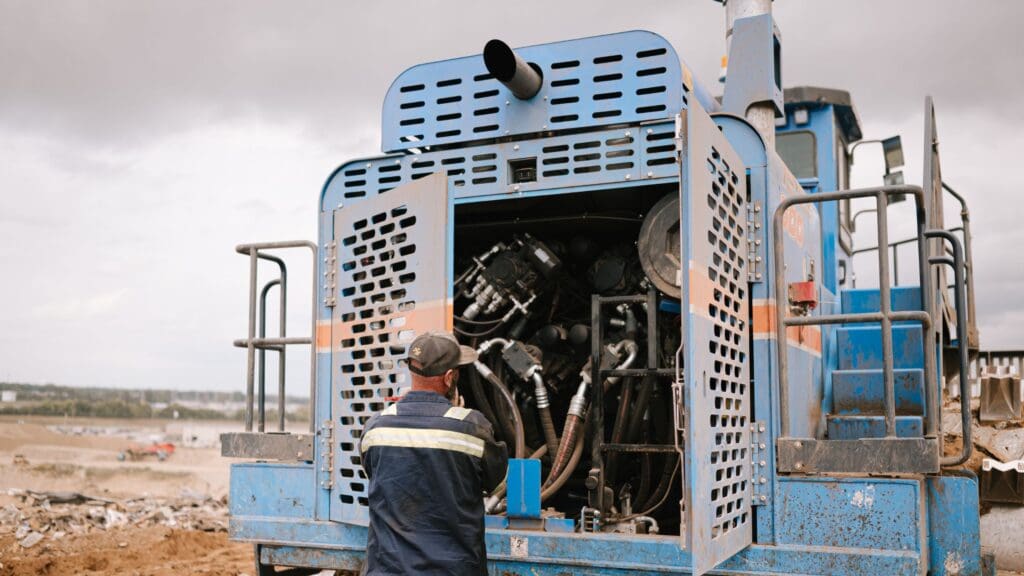Diesel engines may feel like the traditional choice while electric is the trendy new kid on the block, but both have a surprisingly long history — and an equally long list of pros and cons. They are both known for their high torque, making them extremely useful for large, power-hungry machinery like scrap equipment. Electric engines can supply full torque immediately, requiring no idling or start up time. They also have fewer moving parts, so they require less maintenance. Diesel machines, on the other hand, are more flexible in their operation. As long as a truck can reach them to keep supplying fuel, they can function anywhere.
Diesel Advantages
Diesel performance can vary with factors like oil age, temperature, and even the weather, but with proper care and maintenance, these engines are durable workhorses that can handle high loads and long days. Refueling only takes a few minutes, and it’s easy to move to a new location within a scrapyard or to a different yard entirely. Optimal positioning can make it easier to load and unload, saving time and effort, and streamlining landfill operations.
It can also be easier to resell diesel equipment; high-voltage electrical power is not generally available throughout most scrapyards, so the pool of potential buyers is limited. And while diesel prices can fluctuate severely and maintenance costs are higher, diesel engines are usually significantly cheaper than electric, lowering upfront costs.
Taking Scrap Equipment Electric
Electric equipment — where the high-voltage infrastructure is in place to operate it — has a number of mechanical, maintenance, and usability advantages:
1. Mechanical
Diesel engines have to rev up to a certain number of RPMs in order to deliver maximum (or adequate) torque, and thus, power. Electric engines operate differently; as soon as they are switched on, they function at maximum power. Additionally, because maximum torque can be applied instantly, many operators feel that electric machinery gives them more precise control.
2. Maintenance
Combustion engines have many moving parts as well as components that need frequent replacement like oil, air, and fuel filters. Electric engines are simpler and require less frequent servicing. Additionally, environmental factors like weather, temperature, and site cleanliness can impact the longevity of diesel engines as air must pass through the engine during operation. Electric engines do not have this problem, further diminishing maintenance requirements even in less-than-optimal conditions.
3. Usability
Electric machinery doesn’t have to be refueled, eliminating a daily operational step as well as the need for fuel storage.
- Starting electric scrap equipment is as easy as clicking a button, and it isn’t temperature dependent, so cold starts and stalls are a thing of the past.
- Electric engines are much quieter than combustion ones, increasing operator comfort.
- Finally, many are drawn to electric machinery for energy efficiency reasons or as part of Environmental, Social, and Corporate Governance (ESG) goals. As regulations become more stringent, the use of electric equipment helps “future-proof” operations. Because they don’t release pollutants during operation, electric equipment can even be used indoors (where appropriate)!
Given these advantages, equipment powered by electricity tends to save money over the long haul. No power is wasted due to idling, maintenance costs and downtime are reduced, and the price of electricity is generally more stable than the price of diesel. Together, these factors improve long-term profitability. However, given the (often significant) upfront costs, the lack of electrical infrastructure in most yards, and the limited resale opportunities for electric, diesel remains a strong choice for many operations.
Whatever your company’s needs, Aljon offers both diesel and electric options for many of our equipment options. Whichever is right for your operation, you can have peace of mind knowing both are robust, reliable, and long-lasting options.



